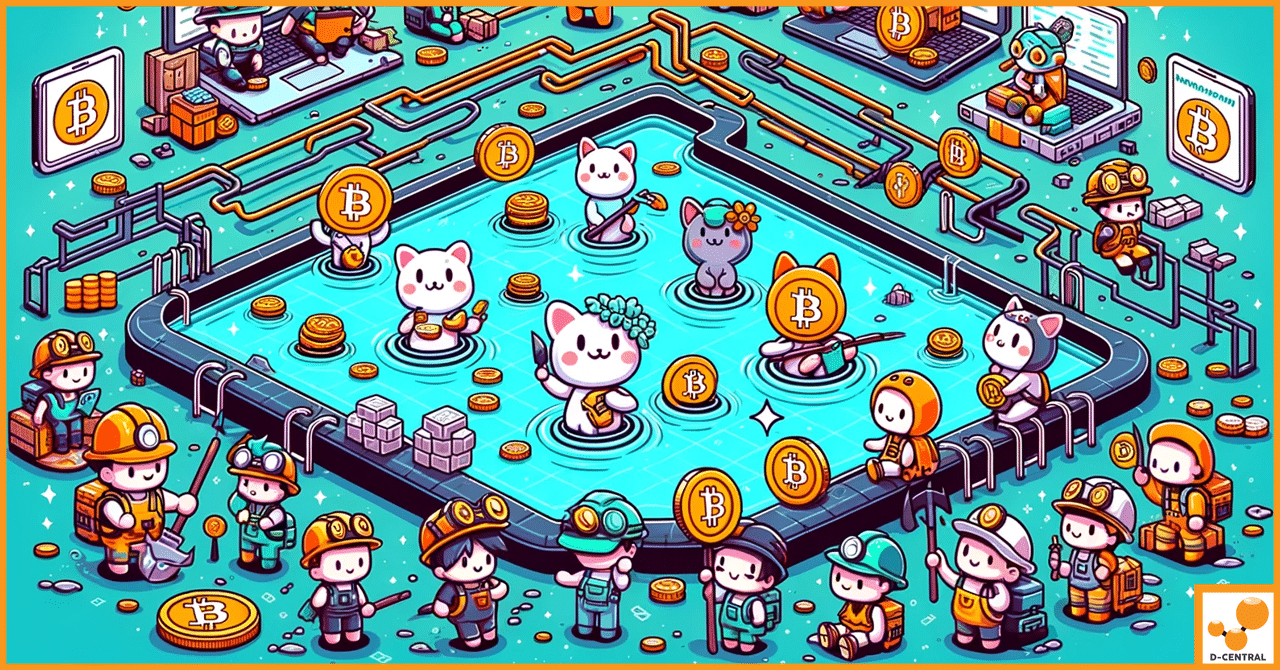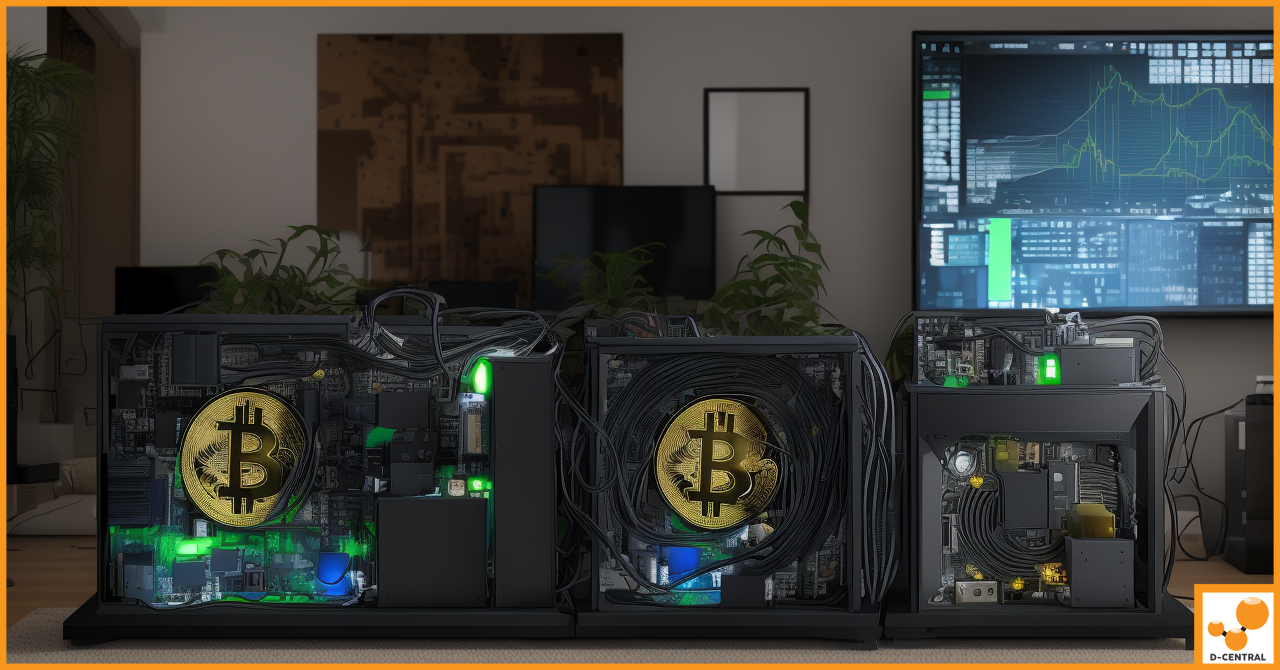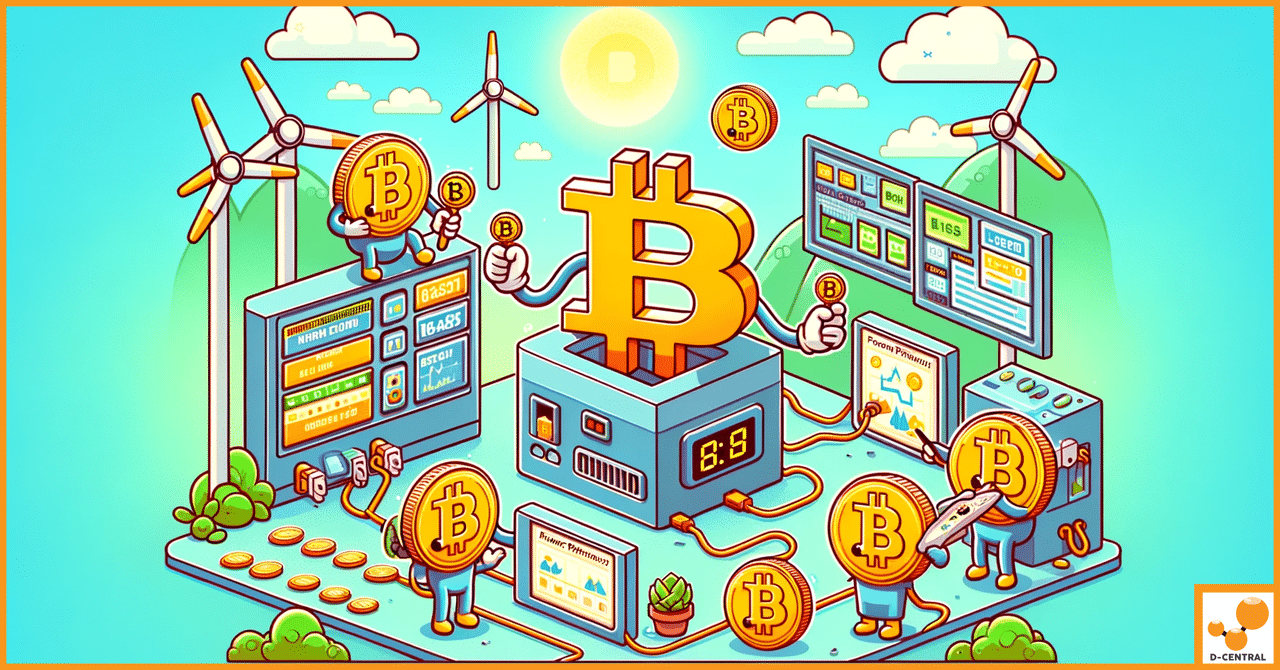
Why You Should Choose Canada for Bitcoin Mining Hosting
In the ever-evolving world of cryptocurrency, Bitcoin mining has emerged as a critical process, underpinning the very fabric of the
4479 Desserte Nord Autoroute 440, Laval, QC H7P 6E2

Bitcoin mining, the backbone of the world’s premier cryptocurrency, has undergone a significant transformation since Bitcoin’s inception in 2009. Initially, enthusiasts could mine Bitcoin using simple home computers. However, as the network grew, so did the difficulty of the mining process. This evolution led to the birth of a critical component in the cryptocurrency mining landscape: mining pools.
Mining pools are groups of miners who combine their computational power to increase their chances of successfully mining Bitcoin and earning block rewards. This collaborative effort marks a shift from the early days of solo mining, where individuals competed independently. As the complexity of mining increased, it became nearly impossible for solo miners to compete with large-scale operations equipped with specialized hardware. Mining pools emerged as a solution to level the playing field, offering individual miners a more consistent and viable way to participate in the mining process.
The importance of mining pools in the current cryptocurrency ecosystem cannot be overstated. They play a crucial role in democratizing Bitcoin mining, allowing individuals with less computational power to contribute to the network and share in the rewards. This pooling of resources not only increases the efficiency of the mining process but also enhances the overall security and stability of the Bitcoin network. By distributing the mining power across various groups, mining pools help prevent the centralization of mining power, which is vital for maintaining the decentralized ethos of Bitcoin.
As we delve deeper into the world of Bitcoin mining pools, it’s essential to understand their mechanics, advantages, and the strategic role they play in the ever-evolving landscape of cryptocurrency mining. Mining pools have become a cornerstone of the Bitcoin network, ensuring its integrity and continued growth, while providing opportunities for miners of all scales to participate in the rewarding journey of cryptocurrency mining.
A mining pool is a collaborative group of cryptocurrency miners who combine their computational resources over a network to increase their chances of mining a block and receiving rewards. In essence, a mining pool is a synergy of power and effort, where individual miners contribute their processing capabilities to a collective pool. This collaboration significantly enhances the pool’s overall hash rate, making it more likely to solve the cryptographic puzzles required to mine new blocks on the blockchain.
In the early days of Bitcoin, mining was a feasible endeavor for individual enthusiasts. Miners could use personal computers to solve the cryptographic puzzles and earn block rewards. However, as Bitcoin gained popularity, the difficulty level of mining increased exponentially. This escalation was due to the network’s design, which adjusts the difficulty of mining puzzles to ensure that a new block is created approximately every ten minutes.
As a result, the computational power required to mine successfully became more substantial than what individual miners could typically provide. This shift led to the development of specialized mining hardware, such as ASICs (Application-Specific Integrated Circuits), which could mine more efficiently than standard computers. Despite this advancement, the high cost and resource requirements of solo mining made it increasingly unprofitable for individuals.
The solution to this challenge was the creation of mining pools. By pooling resources, miners could share the computational burden and increase their collective probability of mining a block and receiving rewards. This approach allowed individual miners to receive smaller, more frequent payouts, rather than competing alone for the full block reward, which had become a rare event for the solo miner.
Mining pools operate by aggregating the computational power of all participating miners. When a member of the pool finds a valid solution to the block puzzle, the pool submits it to the blockchain network. If the solution is accepted and the block is added to the blockchain, the mining pool receives the block reward.
The reward is then distributed among the pool members, typically based on the amount of computational power (or ‘hash rate’) each miner contributed. This distribution is often calculated using a system of ‘shares’ – units of account that represent the work each miner has contributed to the pool. Different mining pools may use various methods to allocate shares and distribute rewards, such as Pay-Per-Share (PPS), Pay-Per-Last-N-Shares (PPLNS), and others.
In a PPS system, miners receive a fixed amount for each share they submit, regardless of whether the pool successfully mines a block. In contrast, PPLNS rewards miners only when the pool mines a block, based on the number of shares they contributed in a given time frame before the block was found.
Mining pools also handle the distribution of transaction fees included in a mined block. These fees, combined with the block reward, form the total incentive for mining. By participating in a pool, miners ensure a more consistent income stream, mitigating the unpredictability and variance of solo mining.
Mining pools have revolutionized the Bitcoin mining process, making it accessible and profitable for a broader range of participants. They exemplify the collaborative spirit of the cryptocurrency community, pooling resources for mutual benefit while maintaining the decentralized ethos of blockchain technology.
One of the most significant advantages of mining pools is the increased efficiency and potential for higher earnings. When miners pool their computational resources, they create a collective hashing power that is much greater than what they could achieve individually. This increased power enhances the pool’s ability to solve the cryptographic puzzles required to mine new blocks, leading to more frequent rewards.
In a mining pool, the probability of earning rewards becomes more consistent and predictable. Instead of facing the high variance and infrequent payouts of solo mining, participants in a mining pool benefit from the pool’s overall success. The rewards, although shared, are distributed regularly, providing miners with a steadier income stream. This system is particularly beneficial for those who may not have the latest or most powerful mining equipment but still wish to participate in mining activities.
Mining pools significantly reduce the variance in mining rewards. In the context of solo mining, the chances of successfully mining a block and receiving the entire reward are exceedingly slim, especially for miners with limited computational resources. This high variance can lead to long periods without any earnings, making mining a risky and potentially unprofitable venture.
By joining a mining pool, miners essentially opt for smaller, more frequent payouts instead of the ‘all or nothing’ approach of solo mining. The collective effort of the pool means that it is more likely to solve blocks regularly, leading to a more predictable and stable income for its participants. This reduction in variance is crucial for many miners, as it allows for better financial planning and investment in further mining resources.
Mining pools have significantly lowered the entry barriers for new miners. In the early days of Bitcoin, individuals could mine using standard home computers. However, as the difficulty of mining increased, effective mining required significant investment in specialized hardware, energy, and cooling systems, making it less accessible for newcomers.
Mining pools democratize the mining process by allowing individuals to contribute whatever computational power they have, whether it’s from a high-end mining rig or a more modest setup. This inclusivity means that new miners can participate in the Bitcoin network without needing to invest heavily in equipment and resources. As a result, mining pools have opened up the world of cryptocurrency mining to a broader audience, fostering greater participation and interest in the field.
Mining pools also contribute to the security and stability of the Bitcoin network. By distributing the mining power across various groups, mining pools help prevent the centralization of mining power in the hands of a few large-scale operations. This distribution is crucial for maintaining the decentralized nature of the Bitcoin network, a core principle of its design.
Furthermore, the collective power of mining pools contributes to the overall hashing power of the network, making it more secure against potential attacks. A higher total hash rate means that it is more challenging for malicious actors to gain control of the network, as they would need an impractical amount of computational power to do so. In this way, mining pools play a vital role in safeguarding the blockchain against threats and ensuring its ongoing integrity and reliability.
The choice of a mining pool depends on the individual miner’s priorities, such as risk tolerance, desired level of earnings stability, and commitment to the principles of decentralization. Each type of pool offers a different balance of these factors, catering to the diverse needs of the mining community.
Selecting the appropriate mining pool is a critical decision for any miner, as it can significantly impact the profitability and efficiency of their mining operations. Several key factors should be considered to ensure that the chosen pool aligns with the miner’s objectives and resources.
This guidance is invaluable in navigating the complex landscape of cryptocurrency mining and ensuring a profitable and efficient mining experience
Mining pools have significantly influenced the economics of cryptocurrency, particularly in how they have democratized access to mining rewards and affected the overall distribution of power within the network. However, this influence comes with its own set of concerns, particularly regarding centralization.
While mining pools play a crucial role in the cryptocurrency ecosystem by enhancing participation and network security, they also bring centralization concerns that could have significant economic implications. It’s essential for the cryptocurrency community to monitor these developments and consider implementing mechanisms to prevent excessive centralization, ensuring that the decentralized ethos of cryptocurrencies is preserved. This balance is vital for maintaining the long-term economic stability and trust in cryptocurrencies.
Mining pools have fundamentally reshaped the landscape of cryptocurrency mining, offering numerous benefits that have made this activity more accessible and efficient. Mining pools are more than just a technical solution; they are a testament to the collaborative spirit of the cryptocurrency community. They embody the balance between individual profit and collective effort, ensuring that the benefits of mining are not reserved for a select few with significant resources. In doing so, mining pools uphold the decentralized ethos of cryptocurrencies, even as they adapt to the evolving challenges of network security and efficiency.
However, as we’ve discussed, the rise of mining pools also brings challenges, particularly in terms of network centralization. It’s a delicate balance that requires ongoing attention and innovation within the cryptocurrency community.
For those looking to venture into mining or optimize their current mining operations, D-Central Technologies offers a wealth of resources and expertise. With a deep understanding of the mining landscape and a commitment to the community, D-Central is well-equipped to guide both new and experienced miners in choosing the right mining pool that aligns with their goals and values.
What is a Bitcoin mining pool?
A Bitcoin mining pool is a group of miners who combine their computational resources over a network to enhance their chances of mining a block and receiving rewards. It allows individual miners to contribute to the mining process and share in the rewards for a more consistent and viable approach.
How did mining pools emerge?
Mining pools emerged as a solution to the increased difficulty in mining Bitcoin due to the rising popularity and network growth. They became necessary for individual miners to remain competitive when specialized hardware like ASICs became the norm for effective mining.
What role do mining pools play in the Bitcoin network?
Mining pools play a crucial role in democratizing Bitcoin mining and maintaining the decentralized ethos of the network. They distribute mining power across different groups, which prevents centralization and contributes to the network’s overall security and stability.
How do mining pools distribute rewards?
Rewards in mining pools are typically distributed based on the amount of computational power (or ‘hash rate’) each miner contributes to the pool. This system often uses a ‘shares’ method to calculate each miner’s contribution and allocate rewards proportionally.
What are the advantages of joining a mining pool?
Joining a mining pool offers increased efficiency, steadier income through more regular and predictable rewards, lower entry barriers for new miners, and helps maintain the security and stability of the Bitcoin network. It reduces variance compared to solo mining.
What are the different types of mining pool payout schemes?
Common payout schemes include Pay-Per-Share (PPS), where miners get a fixed amount for each share submitted, and Pay-Per-Last-N-Shares (PPLNS), where rewards are based on the number of shares submitted in the time frame before a block is found. Variants like PPS+ and Full Pay-Per-Share (FPPS) also distribute transaction fee rewards.
What should be considered when choosing a mining pool?
Miners should consider fees, payout scheme, pool size, server location, the pool’s reputation, and community feedback when selecting a mining pool to ensure alignment with their objectives and resources for profitable and efficient mining.
What are concerns related to the centralization of mining pools?
Centralization concerns include the risk of pool dominance, potential for 51% attacks, disproportionate influence on blockchain governance, and risks of market manipulation. These can undermine the trust and decentralization in cryptocurrencies.
How does D-Central Technologies support cryptocurrency mining?
D-Central Technologies provides resources and expertise to guide both new and experienced miners. They offer support in selecting the right mining pool and help optimize mining operations in alignment with the miners’ goals and values.
DISCLAIMER: D-Central Technologies and its associated content, including this blog, do not serve as financial advisors or official investment advisors. The insights and opinions shared here or by any guests featured in our content are provided purely for informational and educational purposes. Such communications should not be interpreted as financial, investment, legal, tax, or any form of specific advice. We are committed to advancing the knowledge and understanding of Bitcoin and its potential impact on society. However, we urge our community to proceed with caution and informed judgment in all related endeavors.
Related Posts

In the ever-evolving world of cryptocurrency, Bitcoin mining has emerged as a critical process, underpinning the very fabric of the

Bitcoin mining has undergone a fascinating evolution since its inception. In the early days, it was a democratized process; anyone

Bitcoin mining stands as the backbone of the Bitcoin network, a process that not only secures the blockchain but also